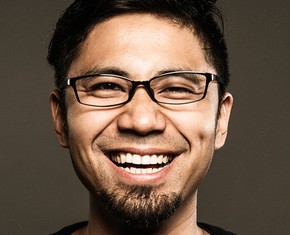The views expressed in our content reflect individual perspectives and do not represent the authoritative views of the Baha'i Faith.
When do we reach our peak?
Somebody quite a bit older than me once said “Nobody takes you seriously after 50—it’s a youth-oriented world.”
Lots of scientific evidence seems to support that conclusion. Cognitively, most scientists tell us, the peak of our mental abilities comes somewhere in our mid-20’s. Physically, the abilities of most professional athletes peak around then, too. Exceptions certainly exist, but our 30’s and early 40’s usually mark the outer limits of the combined peaks of our physical and mental functions, at least for many people. Everything, as they say, is downhill from there.
Or is it?
Without question, people older than that have accomplished an enormous amount. Statesmen, elders and geniuses of every stripe regularly do great things long into their seventies and eighties. But without question, the body and the brain have their limits, and the abilities of both do typically begin to diminish after mid-life. Our hair turns gray, physical strength and flexibility decline, fertility drops, memory suffers, even our very cells begin to shorten their reproductive lifespans.
Despite all of this, the great psychiatrist and philosopher Carl Jung viewed the post-peak period of life, the “second half,” as he called it, as the most important segment of our physical existence. Why? He explains:
As a doctor, I make every effort to strengthen the belief in immortality, especially with older patients when such questions come threateningly close. For, seen in correct psychological perspective, death is not an end but a goal, and life’s inclination towards death begins as soon as the meridian is past. – C.G. Jung, commentary on The Secret of the Golden Flower
“As soon as the meridian is past,” Jung wrote, in a phrase guaranteed to make everyone want to calculate their lifespan. Now, in the developed world, we reach our meridian, the median age between birth and our expiration date, somewhere in our late thirties or early forties. It comes much earlier in some cultures. So if you’re almost there, or past that point, you may want to start thinking about how to make death your goal.
Sounds really strange, doesn’t it?
But if you think deeply about this idea, so foreign to most of our cultures, it has a terrific heft to it. When you meditate on it, it makes eminent sense. We certainly can’t avoid the eventual demise of our physical frame, and yet, every Faith tells us, our immortal consciousness continues—so why not plan for, look forward to and celebrate that inescapable fact? Why not prepare yourself by doing the inner reflection and contemplation necessary to detach from the physical and attach to the spiritual? Why not seek out and find a belief system that resonates in your heart and soul? Why not accept your death and even welcome it?
What if we all made death our goal? What if we began to think of it as a second birth, the entrance to the next world, a beautiful transition to the continuity of life in a non-material realm? What if we embraced it rather than dreaded it? What if, in Jung’s phrase, we “lived into our death?”
The most respected and influential psychiatrist in history tells us that psychologically healthy adults do just that; and the Baha’i teachings invite everyone to come to the same conclusion:
Release yourselves from this world’s life, and at every stage long ye for non-existence; for when the ray returneth to the sun, it is wiped out, and when the drop cometh to the sea, it vanisheth, and when the true lover findeth his Beloved, he yieldeth up his soul. – Abdu’l-Baha, Selections from the Writings of Abdu’l-Baha, p. 76.
If this sounds a little too much like a loss of your individuality, don’t worry—the Baha’i Faith assures us that the soul, after death, keeps its personality and its uniqueness:
You will retain your individuality and will not be swallowed up in one vast spirit. Concerning the condition of the human soul after its ascension from the material world: the essence of the human soul is clarified from material substances and purified from the embodiment of physical things. It is exclusively luminous; it has no body; it is a dazzling pencil of light; it is a celestial orb of brightness. – Abdu’l-Baha, Star of the West, Volume 8, p. 38.
Many people reach their personal meridian and go through what the psychiatrists call a midlife crisis—triggered by the realization of their own mortality, the non-achievement of certain life goals, the physical changes that lead to aging, dissatisfaction with a relationship or a career or children leaving home. This midlife discontent, Jung pointed out, often occurs as the result of our perception of a dwindling future followed by the end of our lives. But that psychological outlook will always defeat us, according to Jung and the Baha’i writings. Instead, if we find ways to look forward to our second life, it will guarantee our happiness as the first one wanes:
O son of spirit! With the joyful tidings of light I hail thee: rejoice! To the court of holiness I summon thee; abide therein that thou mayest live in peace for evermore. – Baha’u’llah, The Hidden Words, p. 11.
















Comments
Sign in or create an account
Continue with Googleor